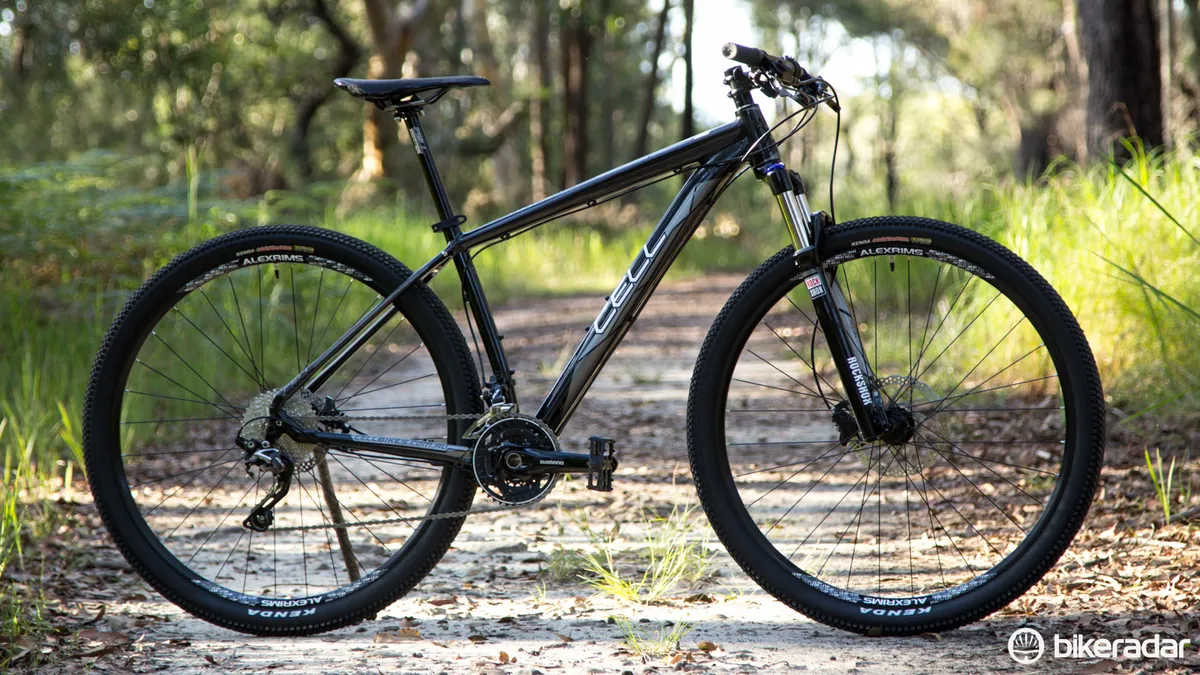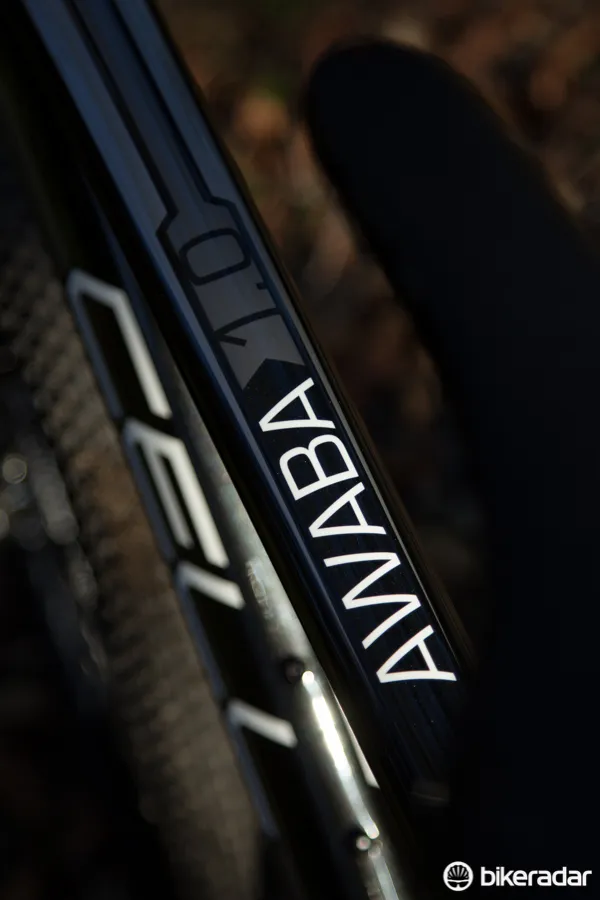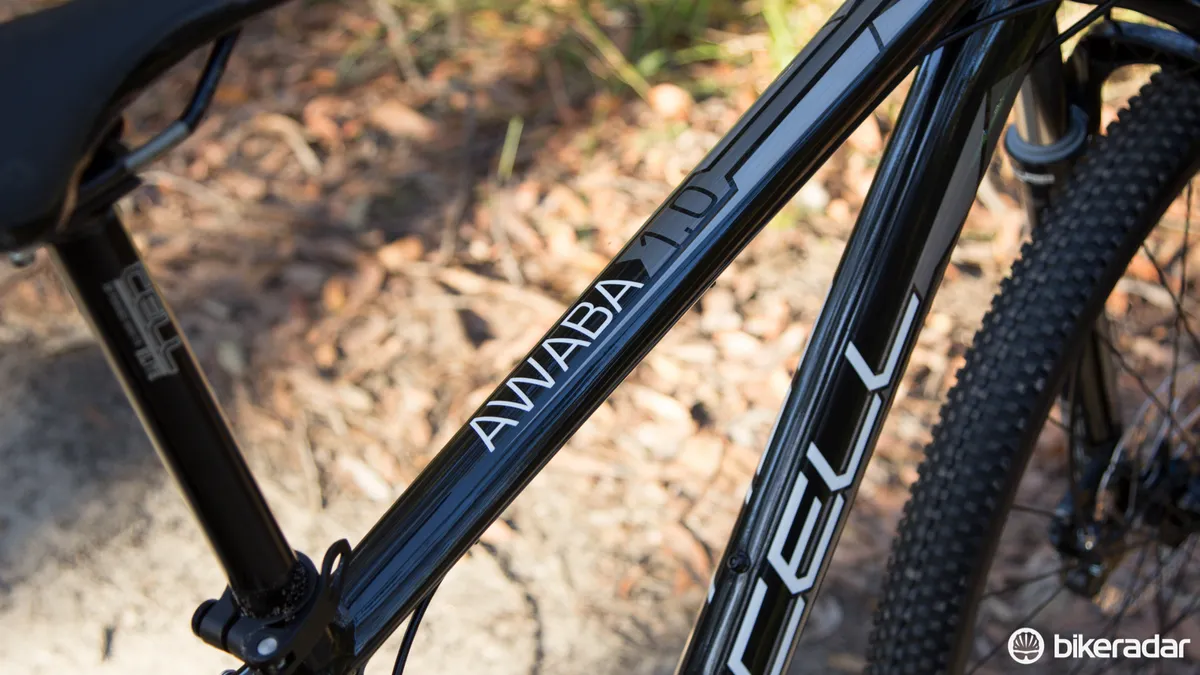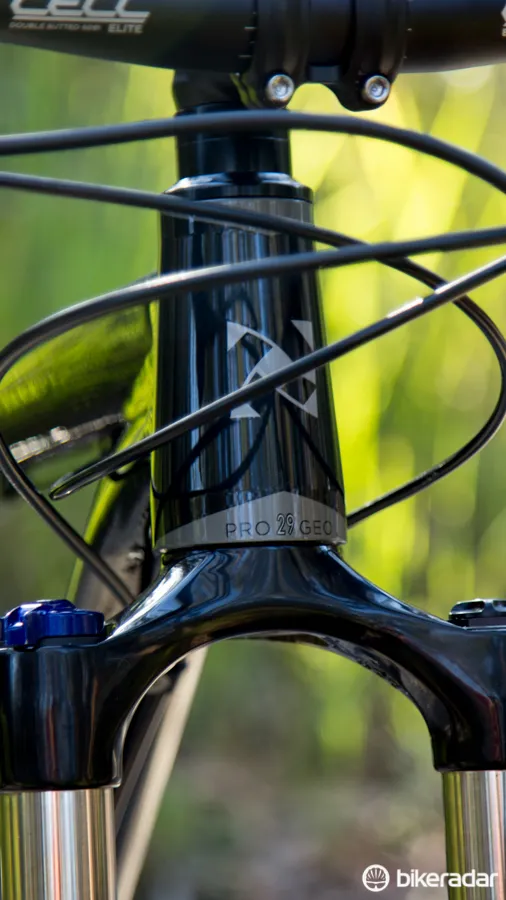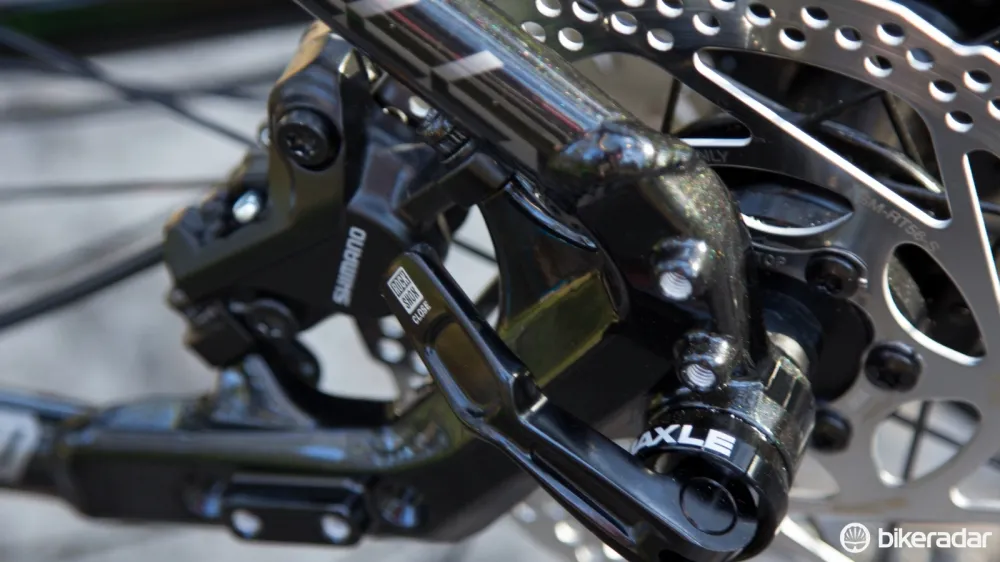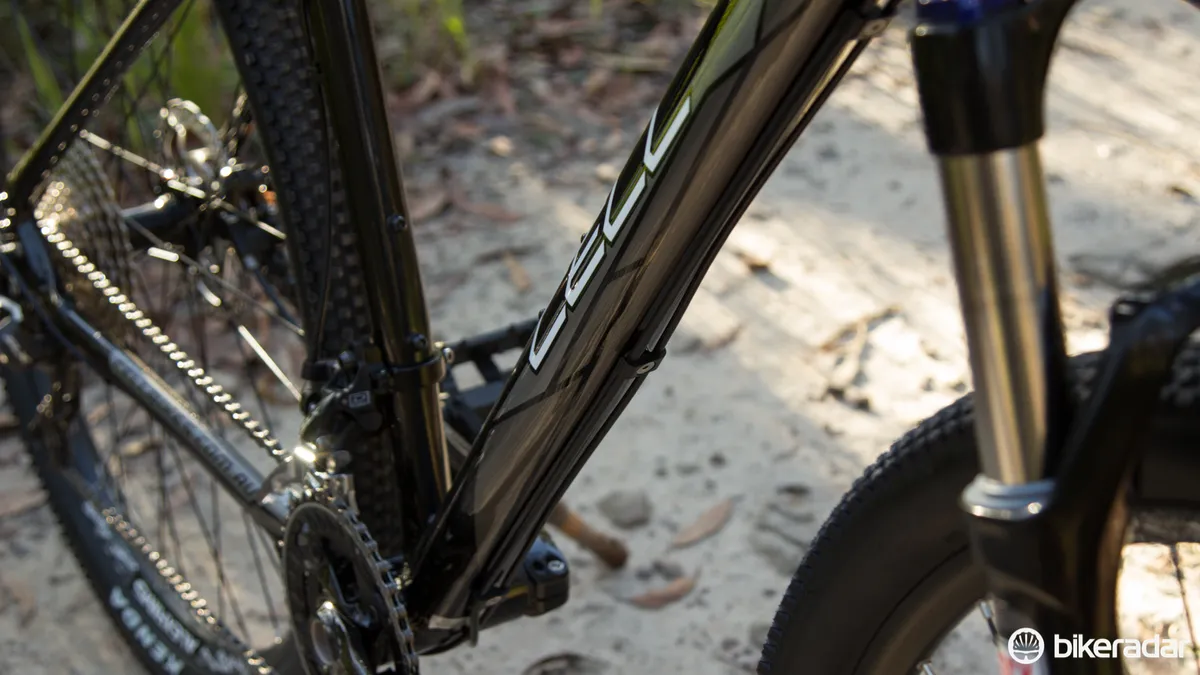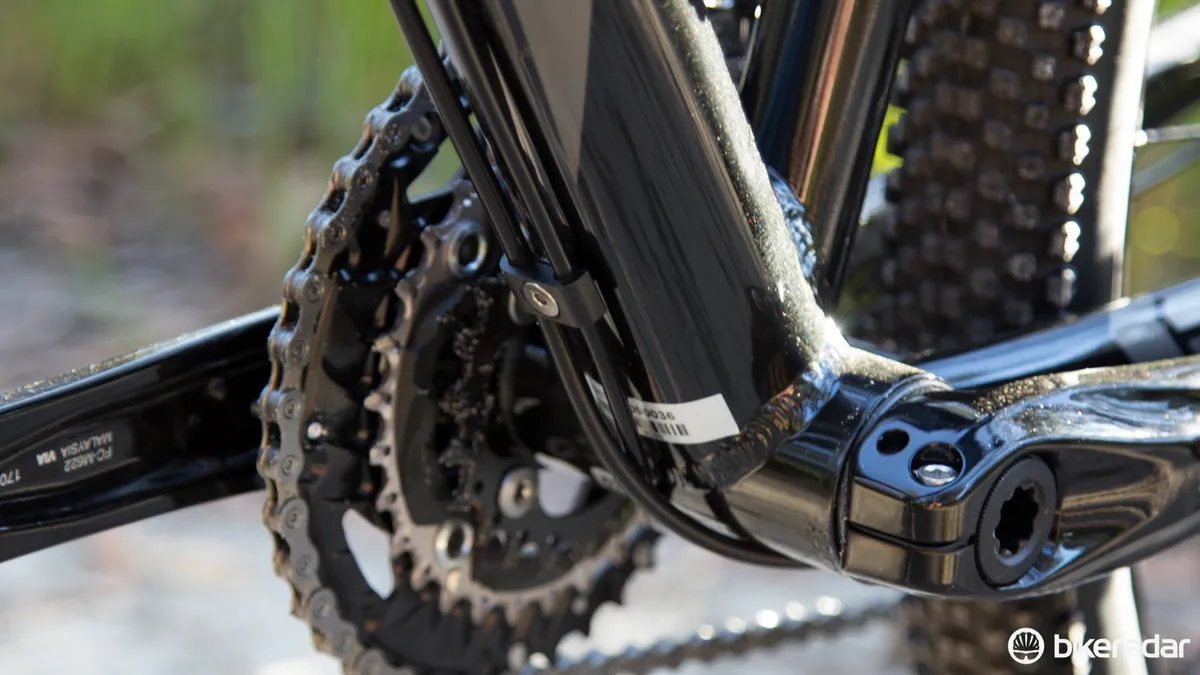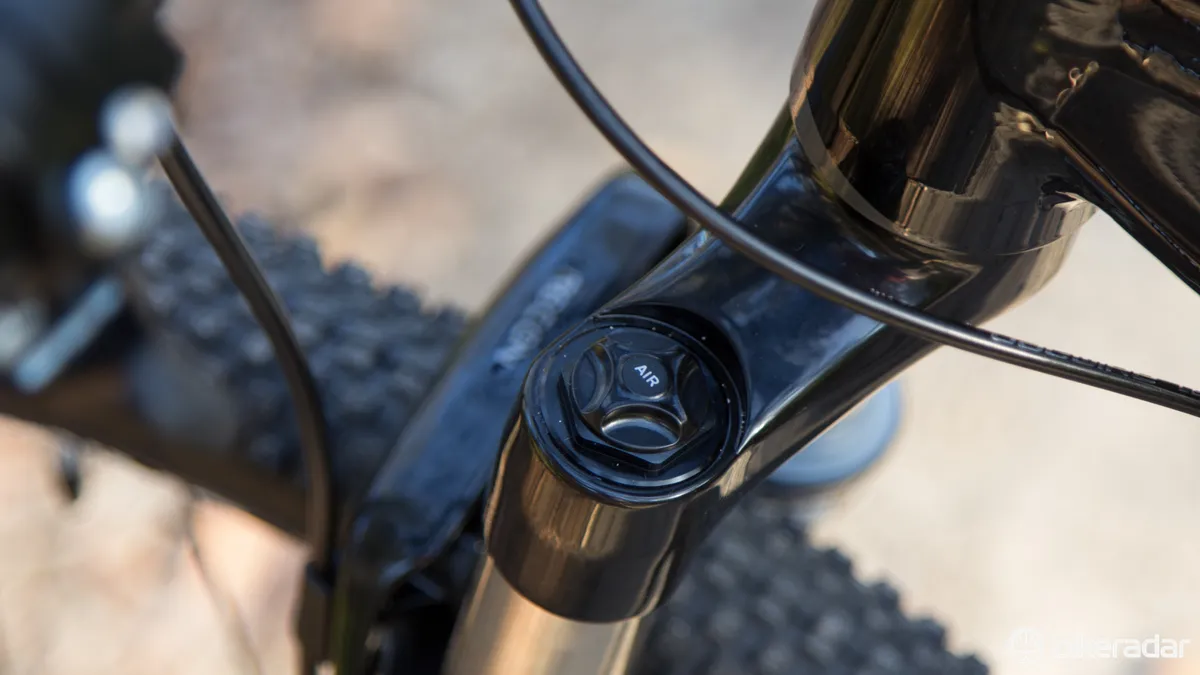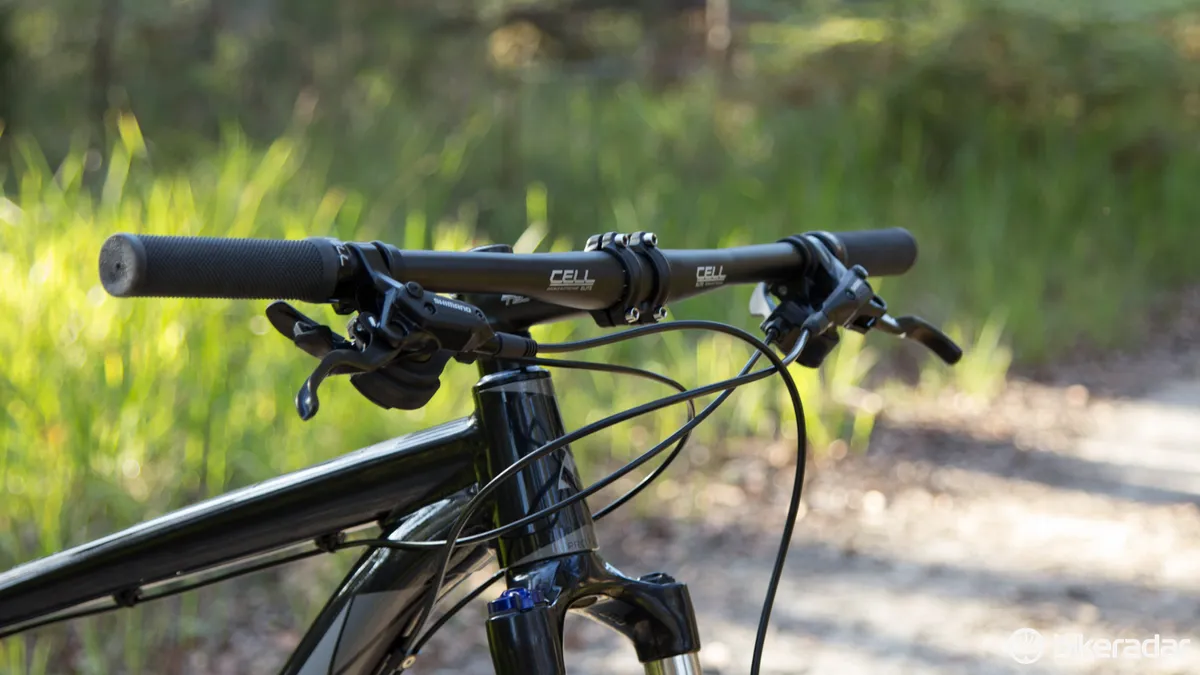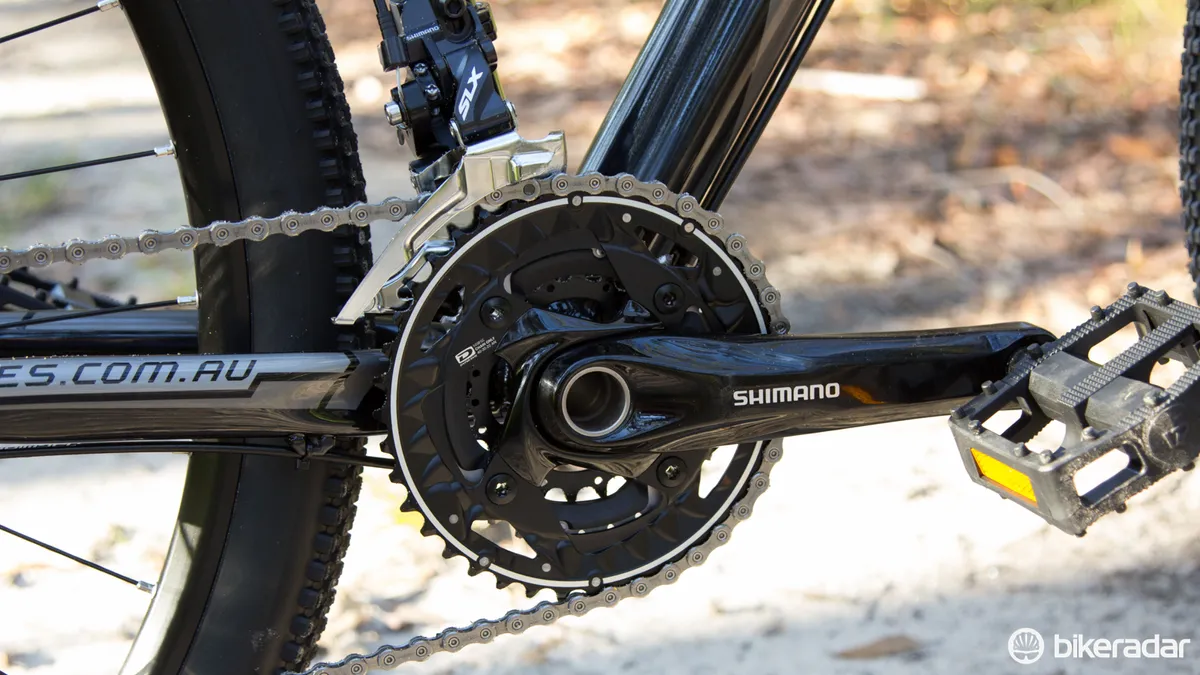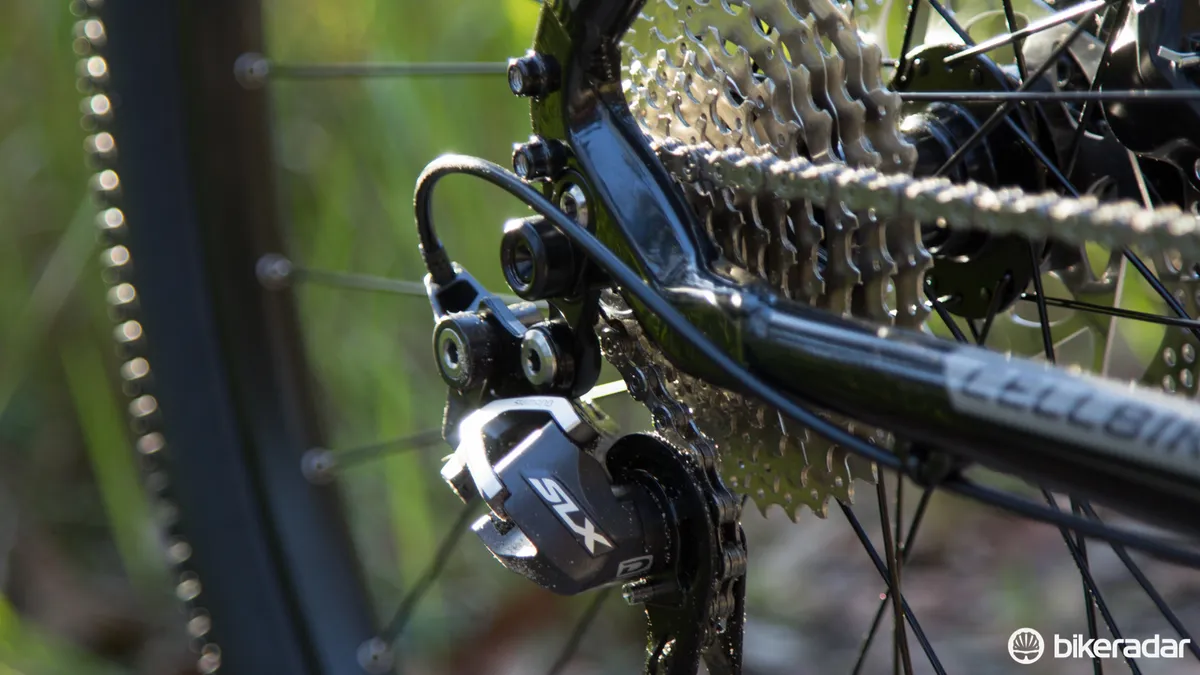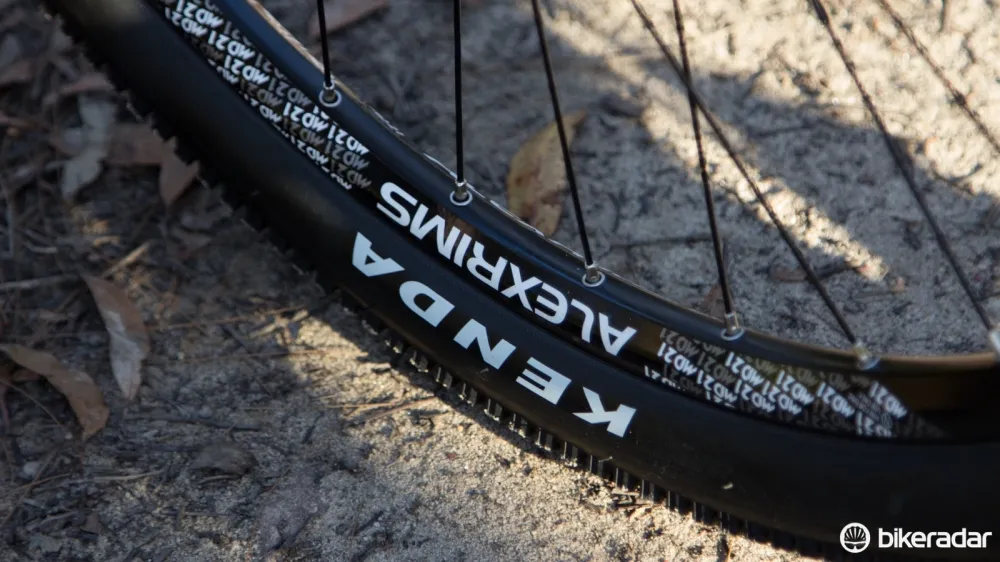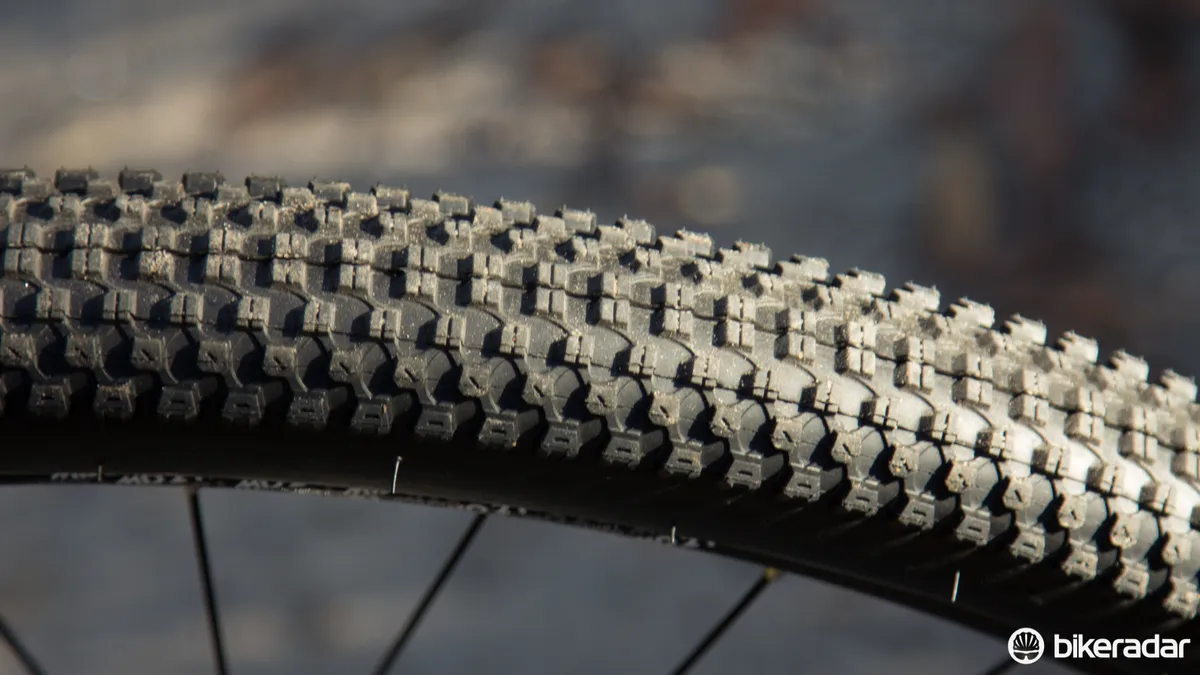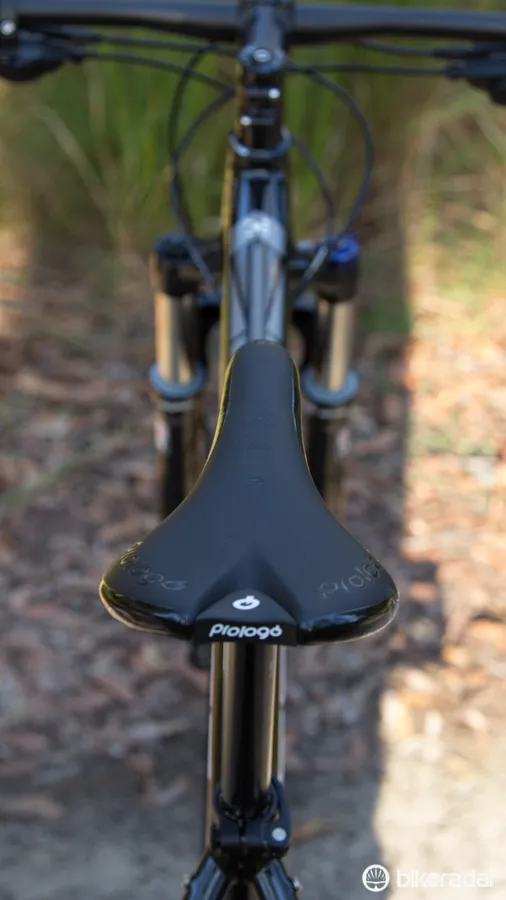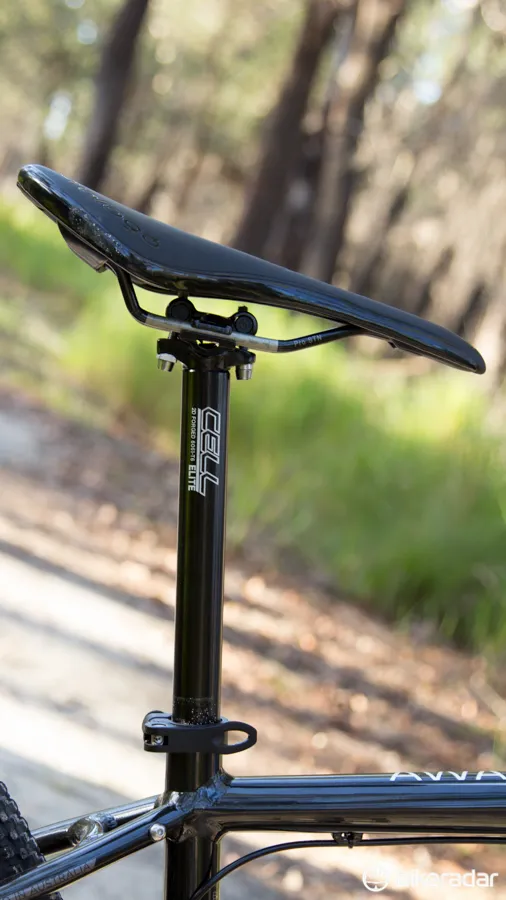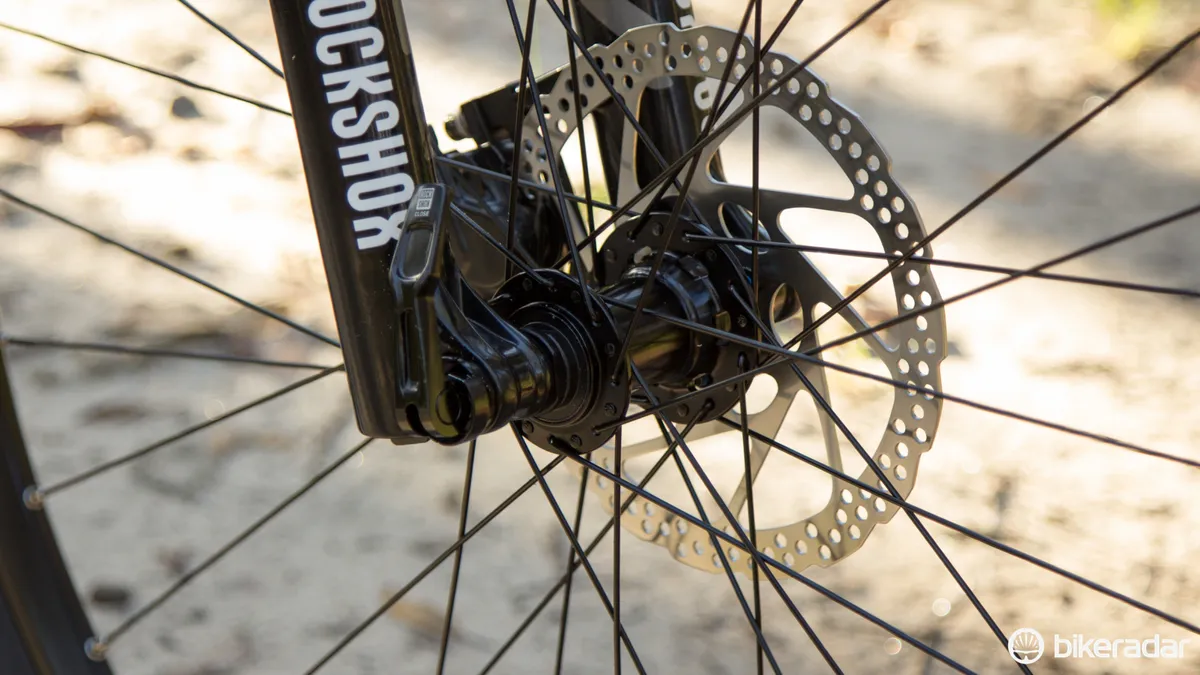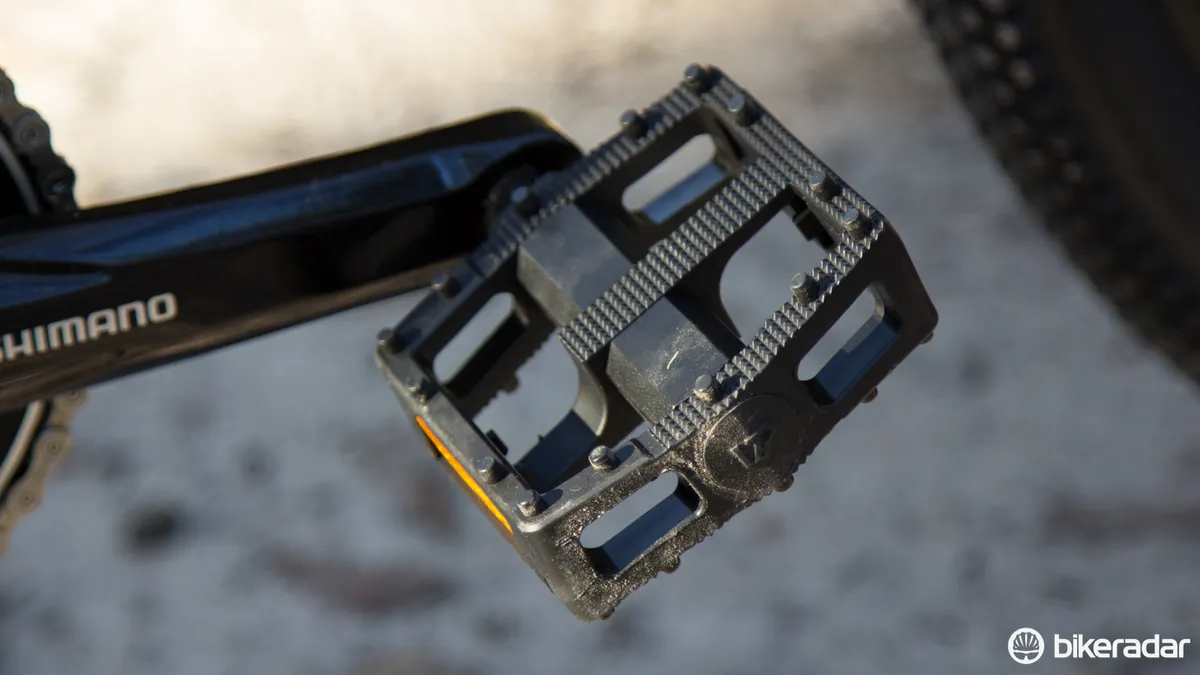The Awaba 1.0 is the fourth Cell bike we've reviewed this year, and there’s little doubt in our minds that the direct-buy brand is making a convincing move from peddling cheap generic bikes, to offering locally designed, high-value rides.
The Awaba is no exception. Like the budget Stromlo 29er we tested previously, it takes its name from a popular trail network – in this case, the fast and flowing trails of the Awaba MTB Park just outside of Newcastle, NSW. As you might expect, the Awaba shines on the fast, cross-country style riding that its namesake trails are known for, but it makes a good weekday-commuter-come-weekend-adventurer too.
The Awaba 1.0 sits beneath the range-topping $1,699 Awaba 2.0, which has the same frame, but is upgraded with a Shimano XT groupset and RockShox Reba suspension fork.
Ride and handling: a familiar ride quality that’s unexpected for the price
With its 29in wheels, the Awaba offers a stable ride that soon gives newer riders confidence over rough trail sections. In what seems like a design cue from Trek’s proven 29er lineup, Cell uses a 51mm offset front fork to reduce the bike’s trail and create neutral steering. This is dubbed ‘Pro Geo’, and although subtle, this helps make the bike more controlled at both high- and low-speeds.
Pro Geo certainly works, and creates a balanced ride that's similar to what we’ve come to expect from the best 29ers from other brands. The big wheel rolls easily over trail obstacles and the handling is still quick enough to get through switchback-like turns where big wheels can often falter.
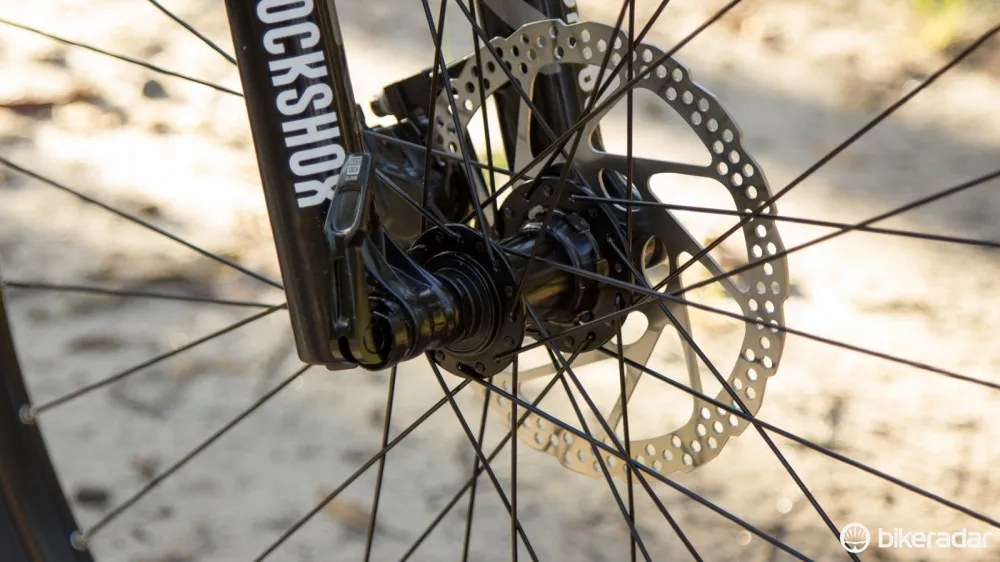
Front and rear thru-axles create solid connections for greater steering precision
The Awaba 1.0 is a confident descender, moreso than you expect, given its price, with thru-axles front and rear and stiff wheels helping keep to your chosen line. A short stem and wide handlebar provide plenty of leverage over the 29in wheel.
By curving the seat tube, Cell has managed to tuck the rear wheel in closer, keeping the chainstay length to a short 435mm. This provides a quicker reaction under pedalling and means you are able to place the rear wheel precisely where needed on technical trail sections.
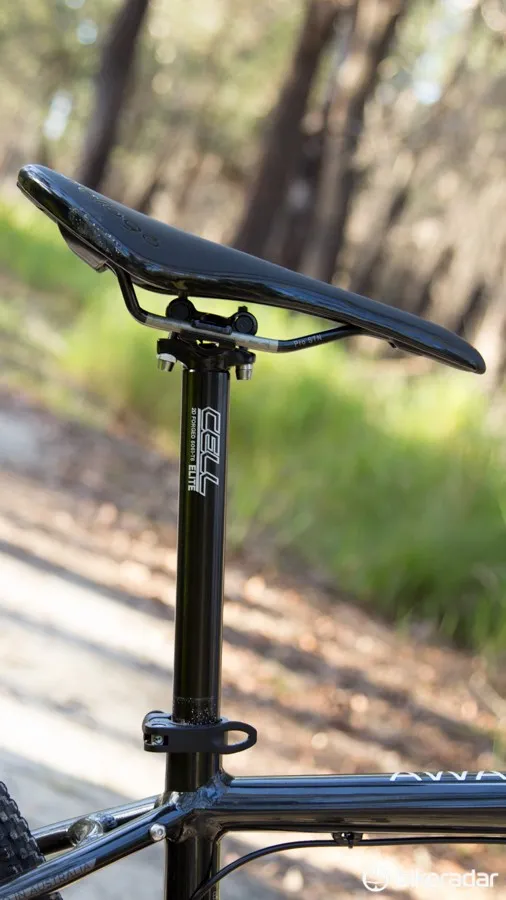
The skinny 27.2mm seatpost offers more give than larger diameter offerings
With a slight curve to the rear seat stays, a skinny 27.2mm seatpost and decently large volume tyres, the ride quality is far smoother than what we’ve come to expect from an aluminium hardtail.
The Awaba suffers the same issue as many low- to mid-range 29ers, in that it carries plenty of rotating mass at the wheels, which hurts the bike’s ability to surge over steeper sections. Beside the heft though, the Awaba climbs where its pointed and the 30-speed gearing will get you where you need to go.
Frame and equipment: you get all that for just that?
For $1,199, you'd expect the Awaba to have some weak areas in its spec, but it just doesn’t. High quality gears and smooth suspension is one thing, but the frame’s feature list is well beyond expectations and belies its rather generic paintscheme.
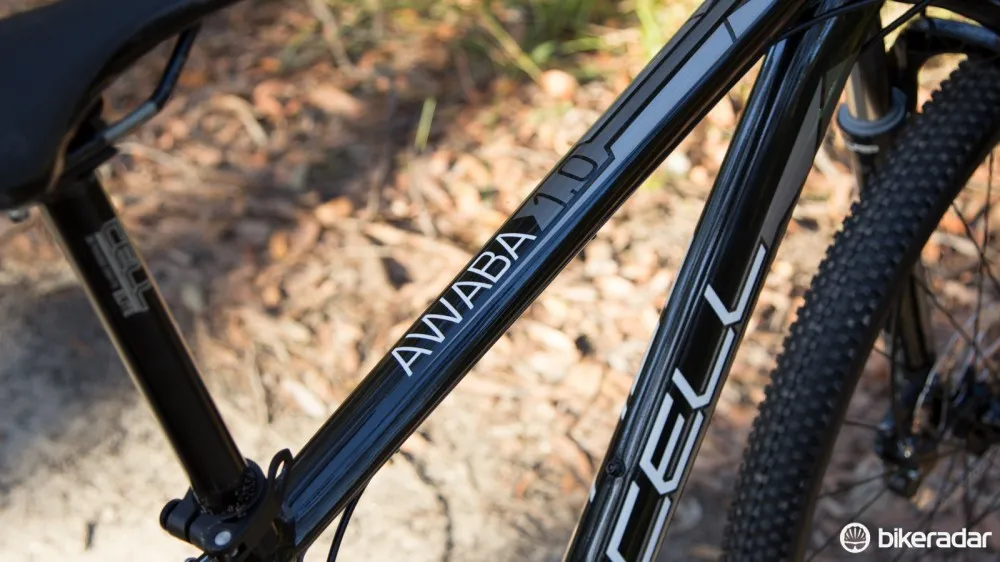
Look past the unimaginative paint and you'll see little expense was spared on this frame
The frame is both light and solid – it's made from triple-butted aluminum tubing, which means the material thickness tapers three times through the length of the tube. The 142 x 12mm rear thru-axle shares the same RockShox Maxle axle design as the front fork. A tapered, integrated headset and press-fit bottom bracket complete the package. These are all features we’re used to, but at price points double the Awaba.
The only strange thing is the mount on the left chainstay for a kickstand – it's not really something that’s needed on a performance mountain bike frame!
On top of all these performance features, Cell has still included rear pannier mounts, which opens the possibility of using the Awaba for everyday commuting or even touring. This is a unique touch with little disadvantage; most proper trail-worthy bikes often ditch the rack mounts as a sign of purpose, while ignoring the fact that people often use mountain bikes for utility purposes.
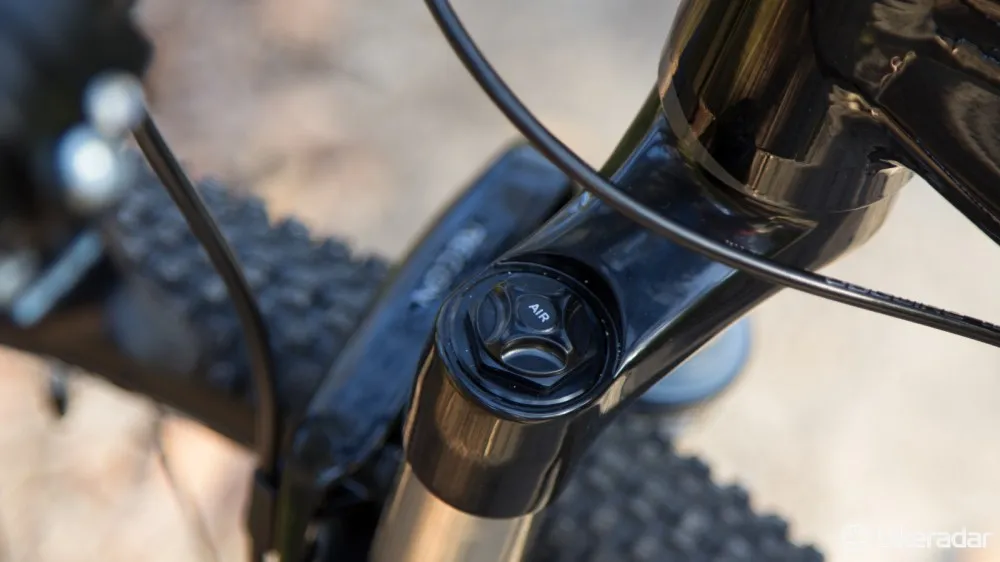
An air spring allows you to fine-tune the fork's firmness (preload)
If the frame is the most important part of a bike, the suspension fork is next. And the 100mm travel RockShox Recon fork brings a handful of features which add to the overall ride experience. With an air-spring, lockout and rebound adjust, it’s easy to setup this fork to individual rider weight and handling preference.
The fork air pressure is first set up by Cell, but future changes will necessitate the additional purchase of a shock pump (approx AU$50). Structurally this fork has then been stiffened with a tapered steerer tube and 15mm thru-axle, features that are all too-often skipped due to price point concessions.
Handling shifting duties is a mix of Shimano SLX and Deore, a groupset that’s off-road ready but that doesn't have the finer finishing and weight savings of more expensive options. This 30-speed gearing offers an enormous range for conquering the steepest of the climbs. With a 40T big ring, some more powerful riders may want a larger 42 or even 44T chainring if commuting on the tarmac regularly.
Keeping speed in check is a pair of entry-level Shimano hydraulic disc brakes. With a larger 180mm front rotor providing greater leverage, these brakes offer ample power and proven reliability. A common gripe is the choice of a ‘resin only’ rotor – this is a small cost-saving measure that will force a rotor upgrade if you wish to use a more durable metallic brake pad.
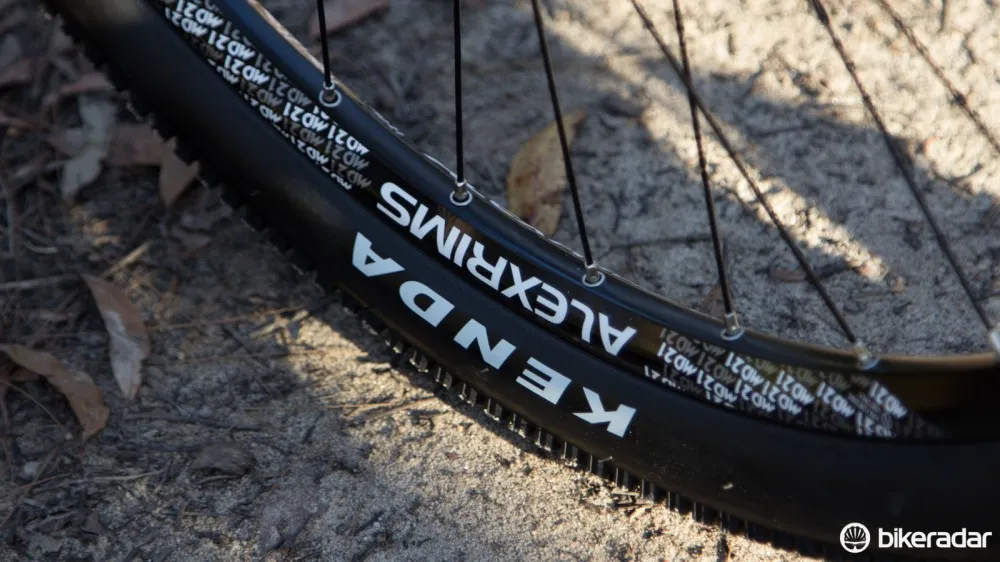
The rims are claimed to be tubeless ready, but in reality most rims can be turned tubeless with the same list of necessary parts
The wheels are well built and perfectly solid, although far from light. Surprisingly, these Alex rims are tubeless-ready with the addition of suitable tape, valves, sealant and compatible tyres. Keeping the wheels buoyant are some dual-compound Kenda Small Block Eight tyres (with tubes), which offer fast rolling and decent grip in dry, hardpack conditions, although they are easily overwhelmed in loose or muddy conditions.
We did experience an issue with our rear hub working itself loose, something that couldn’t be solved out on the trail. Cell assures us this won't happen to anyone else, and that all stock will be checked for this issue and remedied.
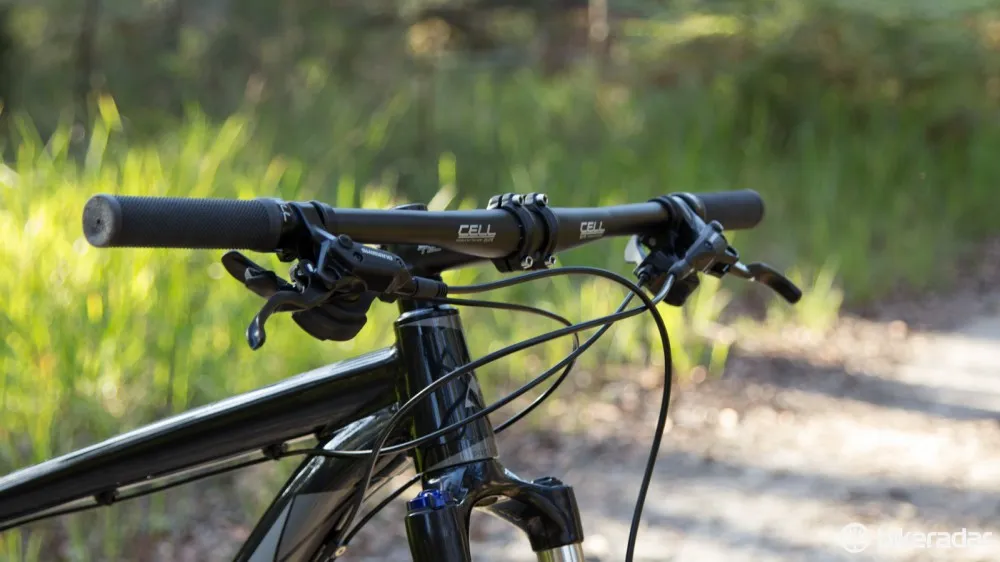
A wide 710mm bar allows for great control over the larger 29in wheel
Completing the build is a bunch of Cell branded cockpit components and a Prologo saddle. A wide, comfortably swept 710mm handlebar matches the slender alloy seatpost, offering a twin-bolt design for an easily adjusted and secure hold of the saddle rail. The only parts we’d switch out are the Cell Lock-on grips, which are a little too firm for our liking.
The Awaba is a bargain buy and a solid performer, but keep in mind that a mountain bike is a technical product that will greatly benefit from professional advice. The Awaba is kept a bargain through it’s factory-direct channel, so if possible, it’s best bought from one of Cell’s retail outlets.
If you’re on a budget and after a bike to hit the trails, or perhaps just commute without giving up your options for off-road adventures, the Awaba is a leading-value challenger.
For an even closer look at the Awaba 1.0, be sure to scroll through the image gallery above.
